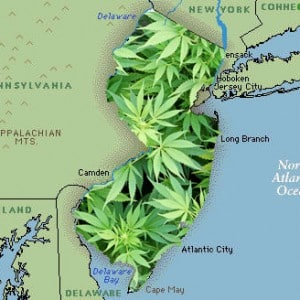 How Does The New Jersey Medical Marijuana Program Work?
How Does The New Jersey Medical Marijuana Program Work?
I’m not sure if you remember or not but, back in January 2010, as his last act before leaving office, New Jersey Governor, Jon Corzine, signed medical marijuana into state law. So far, so good; we got excited. But along came Corzine’s successor, Chris Christie, who did everything within his power to block, or at least, delay the implementation of the law. Nevertheless, on Tuesday, July 19, 2011 Christie finally green-lighted the law.
The New Jersey Medical Marijuana Act is more restrictive than pro-medical-marijuana law in other states: treatment with medical cannabis is only allowed after other treatments have failed and the list of qualifying ailments is short and rigid.
Medical Marijuana in New Jersey: How to Register as a Patient/Physician
For you to participate in the program your physician must register with the New Jersey Medical Marijuana Program and must confirm that you are undergoing treatment for one of the medical conditions listed below. The physician must attest that your symptoms are likely to be helped by the use of medical marijuana.
Instructions for Physicians Registering with the New Jersey Medical Marijuana Program
Physicians Registration Form for the New Jersey Medical Marijuana Program
Following registration and verification, your doctor will be able to register patients to the program. Patient registration is not yet open but it is expected to commence later this year.
Medical Marijuana in New Jersey: Primary Caregivers
As a patient you may nominate a Primary Caregiver who will be permitted to collect your medication if you are unable to do so. Your Primary Caregiver will be required to undergo extensive criminal background checks.
Medical Marijuana in New Jersey: Qualifying Conditions
Patients must be certified by their physicians as having a debilitating medical condition, such as:
- Amyotrophic lateral sclerosis
- Multiple sclerosis
- Terminal cancer
- Muscular dystrophy
- Inflammatory bowel disease, including Crohn’s disease
Terminal illness also qualifies if the physician determines the patient has less than 12 months to live
The following conditions qualify if they are resistant to conventional medical therapy:
- Seizure disorder, including epilepsy
- Intractable skeletal muscular spasticity
- Glaucoma
The following conditions qualify if severe or chronic pain, severe nausea or vomiting, cachexia, or wasting syndrome results from the condition or its treatment
- Positive status for AIDS, HIV or cancer
Medical Marijuana in New Jersey: Dispensaries/Alternative Treatment Centers
Six non-profit bodies have been selected to operate Alternative Treatment Centers (ATCs) for the state’s Medicinal Marijuana program. They are:
-
Breakwater Alternative Treatment Center, Corp., Ocean, Central Region;
Board of Trustees/Officers: Richard Lefkowitz, CEO; H. Alexander Zaleski, COO.
The ATC would be located in Manalapan, Monmouth County
-
Compassionate Care Centers of America Foundation Inc. (CCCAF), Jersey City, Central Region;
Board of Directors: David Weisser, Michael Weisser and Anastasia Burlyuk.
The ATC would be located in New Brunswick, Middlesex County
-
Compassionate Care Foundation Inc., West Trenton, Southern Region;
Board of Trustees: William J. Thomas, David Knowlton, James C. Herrmann, Ann Marie Hill, Jeffrey Warren, JoAnn Lange, Mark Dumoff.
The ATC would be located in Bellmawr, Camden County
-
Compassionate Sciences, Inc. ATC, Sea Cliff, NY, Southern Region;
Board of Trustees, CEO Richard Taney, Dr. Steven Paterno, CFO Jack Burkolder; Webster Todd.
The location of the ATC is undetermined, but will be located in either Burlington or Camden County
-
Foundation Harmony, Cliffside Park, Northern Region;
Board of Directors: Maria Karavas, Ida Umanskaya, Margarita Ivanova and Dmitri Bajanov.
The ATC would be in Secaucus, Hudson County
-
Greenleaf Compassion Center, Montclair, Northern Region;
Board of Trustees: Joseph Stevens, president, CEO; Jordan A. Matthews, Robert J. Guarino.
The ATC would be in Montclair, Essex County
Alternative Treatment Centers: Regulations
- ATCs are not permitted to run a delivery service
- ATCs must not allow the consumption of marijuana on their premises
- ATCs must not offer cannabis edibles
- Qualifying patients may obtain their medical cannabis only from an ATC. Any person who obtains, possesses, uses or sells marijuana in any manner that is not authorized under the Compassionate Use Law will be subject to arrest and criminal prosecution.
- You must not share or give away your medical cannabis
Medical Marijuana in New Jersey: Possession
- Patients registered with the New Jersey Medicinal Marijuana Program may possess/use a maximum of two ounces of marijuana in any 30 day period
- Qualifying patients may obtain their medical cannabis only from an ATC. Any person who obtains, possesses, uses or sells marijuana in any manner that is not authorized under the Compassionate Use Law will be subject to arrest and criminal prosecution
- Patients must not share or give away their medical cannabis
- Patients may not grow their own marijuana
Medical Marijuana in New Jersey: Registration Fee
The registration fee for patients and caregivers is $200, this is valid for two years. For patients who qualify for state or federal assistance programs there will be a reduced fee of $20.
Courtesy of the Medical Marijuana Blog







